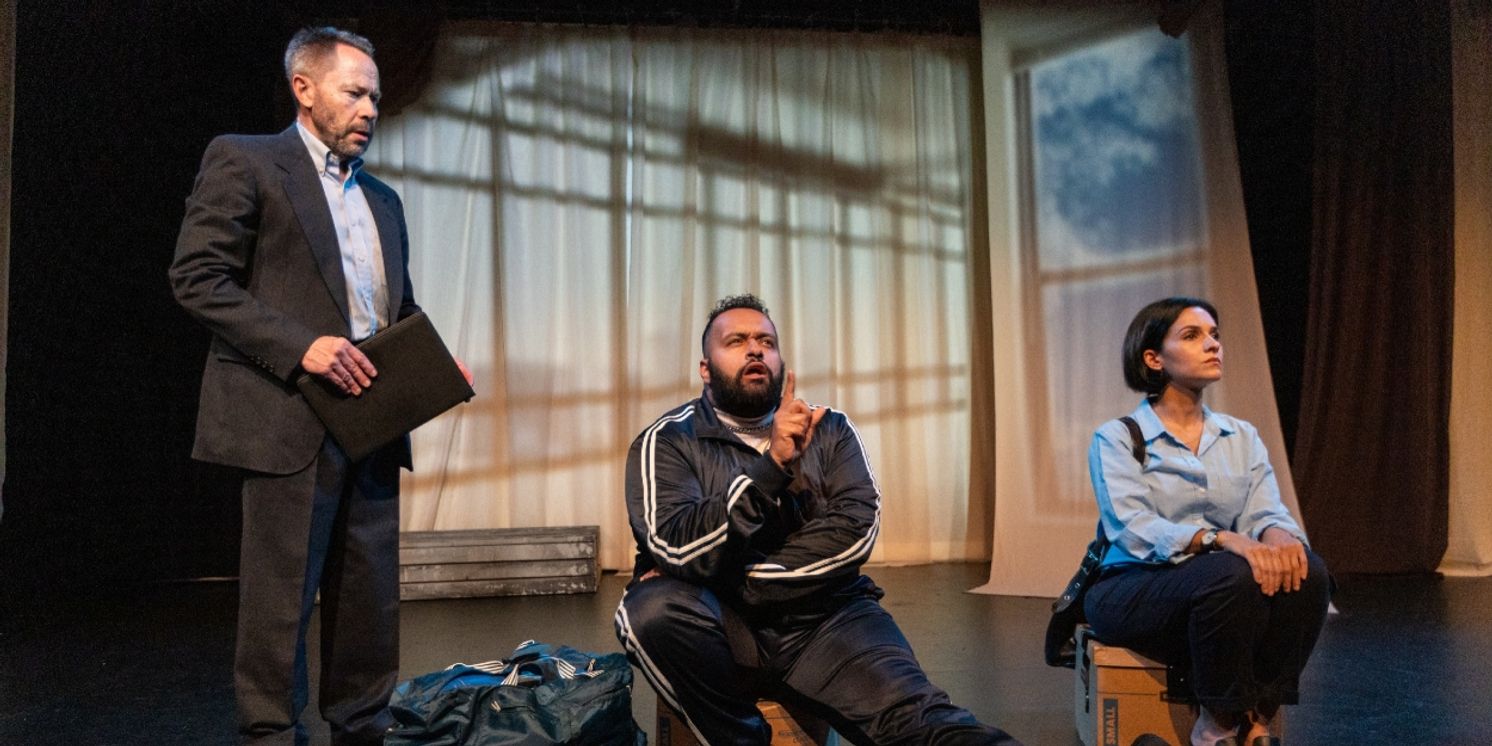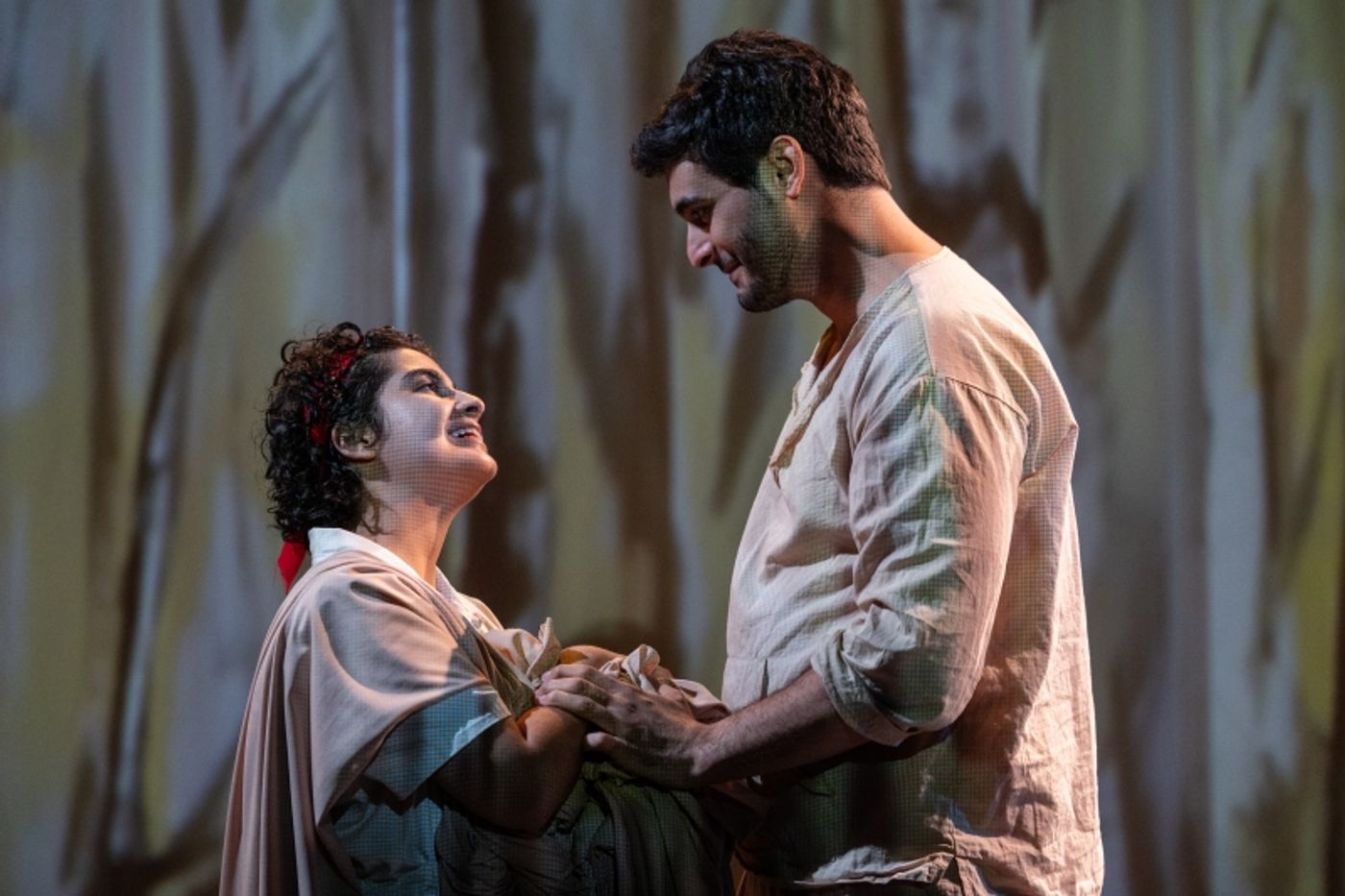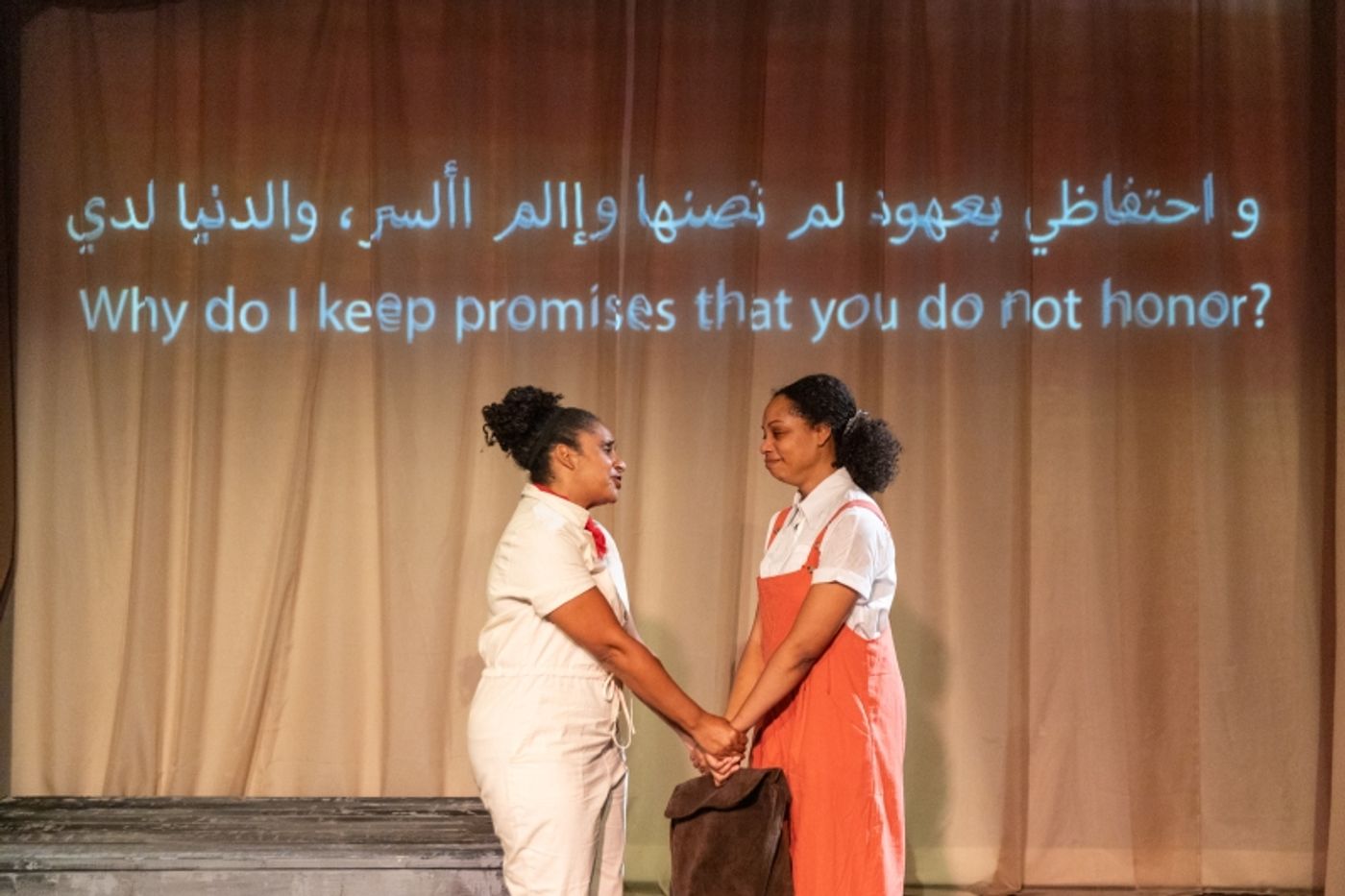Review: SCORCHED at Atlas Performing Arts Center's ExPats Theatre
Now through October 15th.

On stage now through October 15 at Atlas’s ExPats Theatre is Wajdi Mouawad’s Scorched, a renowned play inspired by the life of Soha Bechara and events in the Lebanese Civil War. The story follows two adult twins, Simon (Ahmad Kamal) and Janine (Neagheen Homaifar) following the death of their estranged mother Nawal (Deema Turkomani, Lisa Hill-Corley). At the reading of their mother’s will, the twins learn that they have a father and brother, who their mother has tasked them with finding. Simon and Janine must return to their mother’s war-torn country of birth where they uncover the dark secrets she kept hidden, culminating in a final distressing revelation about their origins.
Simon and Janine’s respective journeys are intertwined with scenes from Nawal’s life, often occupying the stage simultaneously. What could be confusing for many viewers instead evokes a lovely mosaic effect on stage, aided by a clever bit of set design wherein landscapes, photographs, and memories are projected on a gently pleated backdrop. Additionally, many of the scenes of Nawal’s past feature a long sheet of winding fabric held by the actors on stage. The fabric is beautifully manipulated during the initial scene between Nawal (Deema Turkomani) and Wahab (Ramsey Zeitouney), where it drapes over the two lovers and they twist it to pull themselves closer together. As Nawal tells him of her pregnancy, Wahab collects his end of the fabric, winding it up in his hands, and leaves it, bound, in Nawal’s arms when he exits the stage. These elegant design choices, as well as the strings-heavy musical accompaniment provided by Tina Chancey, add a complementary ethereality to the poetic and haunting quality of Mouawad’s text.

Some elements of ExPat’s production, however, are perplexing, especially when juxtaposed against such lovely artistic touches. Firstly, this rendition of Scorched features some odd changes to the script, most notably a rewriting of the heartbeat-like refrain that appears throughout the play. ExPat’s production has changed this line from “Now that we’re together, everything feels better” (translated by Linda Gaboriau from the original French “Maintenant que nous sommes ensemble, ça va mieux.”) to “Nothing means more than being together.” Scorched is a work in translation, so perhaps the director felt that this was a more accurate translation of the original French, but it brings forth a fundamentally different meaning to this central detail in Mouawad’s story. Why make this change?
Secondly, and most puzzling, ExPat’s production inexplicably seems to bring forth a heavy comedic element to Scorched, a choice that often borders on irreverent. Scorched is a harrowing, often disturbing play; the atrocities and absurdities of war are some of its central preoccupations. There are certainly some funny lines here and there—for example, the bumbling but well-intentioned notary Alphonse Lebel, charmingly played by Steve Lebens, adds some much-needed lightness to many scenes. And there are utterly bizarre scenes, too, that gesture toward the absurdity of war and how violence can completely rework the human psyche—the sniper-rifle-as-air-guitar scene certainly makes this point.
Scorched is not, however, by any means a comedy, though the audience’s frequent laughter on opening night would suggest otherwise. In one scene, a young Nawal (Deema Turkomani) and Sawda (Melan Perez) are threatened by a militiaman (George Kassouf), who carves up an apple with his knife while recounting stories of his past kills. “The first time is hard. Then it gets easier, like everything else,” he says. The militiaman grabs Nawal and tells her he’ll slit her throat next, but Sawda grabs a gun and kills him first in order to save her friend. “Nawal, I’m afraid he’s right,” she says. “You heard what he said: ‘The first time is hard, then it gets easier.”’ Bafflingly, there was laughter throughout this scene, particularly at this last line. Similar instances occur throughout—when Nawal’s grandmother Nazira (Hilary Kacser) delivers a monologue as she dies, using her last breaths to urge Nawal to leave the village and learn how to read and write. “In two days, they will bury me,” she says. “They’ll put me in the ground […] but they won’t write anything on the stone because no one knows how to write.” Again, laughter at this line. One could assume these moments were unintentional, could just attribute the laughter to the particular audience present or even an actor’s clumsy line delivery due to opening night jitters, had the director not also often joined in.
The result is that the final, dramatic reveal feels unearned and, to borrow words from the audience member behind me, like it comes completely out of left field. This reaction indicates that the odd comedic bend to this production eclipses both Mouawad’s rich, contemplative text and ExPat’s own lovely design choices. And it is such a shame that the many excellent performances in ExPat’s Scorched are similarly obscured—namely, those of Ahmad Kamal and Neagheen Homaifar, whose beautiful depictions of the twins bring forth the deep, easy familiarity found between siblings, and Deema Turkomani, whose bright, youthful Nawal brings a remarkable contrast to the bleakness of her daily reality, and, finally, Melan Perez who often steals the show as the fierce Sawda.

Other stumbles seemed more to be a question of opening night nerves: misspoken lines, some missed or delayed lighting cues, sound effects that occasionally overpower the actors’ voices—all wrinkles that will certainly be ironed out as the run continues. It is my sincere hope that the other issues follow suit, as this production has the potential to be truly wonderful.
Scorched is onstage at Atlas Performing Arts Center through October 15, 2023. The run time is approximately two and a half hours with a ten-minute intermission.
Cover Photo Credit: DJ Corey Photography featuring (from left to right) Steve Lebens, Ahmad Kamal, and Neagheen Homaifar.
Reader Reviews
Videos

